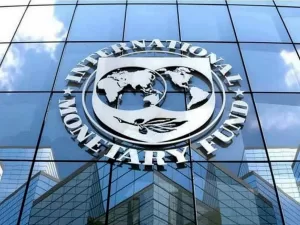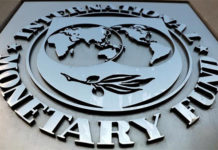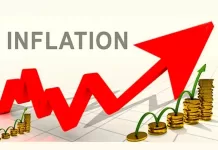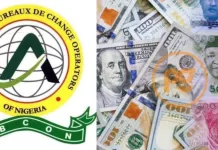If President Bola Tinubu can put an end to Nigeria’s raging inflation, then, there is no way Nigerians will not love him.
You see, the hardship in Nigeria, became very obvious with the removal of petrol subsidy by Tinubu.
Now, the man is trying to make things right again.

Indeed, President is making efforts to restore order, tranquility and living standards to what they should be or even better.
These efforts make sense to the International Monetary Fund (IMF) which has reviewed Nigeria’s inflation rate.
You see, there is nothing more comforting than knowing that people appreciate your efforts to improve things.
The International Monetary Fund (IMF) in a recent review submitted that Nigeria’s inflation rate will drop to 23% by 2025.
Have You Read: Unprecedented! Inflation Rate Rises To 33.2% In Nigeria
Division Chief of the IMF Research Dept, Daniel Leigh said: “We see Nigeria’s inflation declining to 23% next year and then 18% in 2026″.
According to him, Nigeria’s economic growth is expected to rise from 2.9% last year to 3.3% this year.
IMF Explains Why Nigeria’s Rate Hike Will Fall By 2025
Leigh attributed this growth to advancements in agriculture, better weather conditions and dry-season farming.
He also made mention of the recovery in the oil sector and improved security.
This was part of the submission made at the Global Economic Outlook at World Bank Spring Meetings in Washington D.C.
Furthermore, the IMF said the economic reforms and the currency policies were the reasons the inflation rate was pegged at 33.2%.
The development comes following the IMF’s 2023 prediction, that the country’s inflation rate for 2025 would slow to 15.5% by 2025.
As Nigeria’s inflation rate rose to 33.2% in March, the food prices hike rose to over 40% in the first quarter of 2024.
Leigh also noted a broad-based increase in Nigeria’s financial and IT sectors.
“Inflation has increased, reflecting the reforms, the exchange rate, and its pass-through into other goods from imports to other goods,” Leigh explained.
However, a Research official of the IMF, Pierre Olivier Gourinchas, said bringing inflation back to target should be the priority.
You May Also Like: See How Inflation Jacks Up Price Of Kerosene To 1,340 Per Litre
“Trade linkages are changing, and some economies could benefit from the reconfiguration of global supply chains.
“The overall impact may be a loss of efficiency, reducing global economic resilience,” Gourinchas said.






